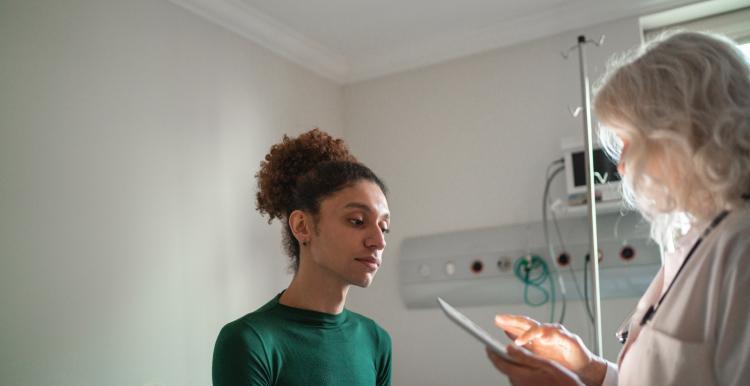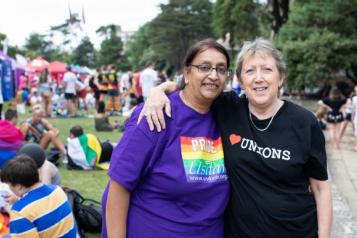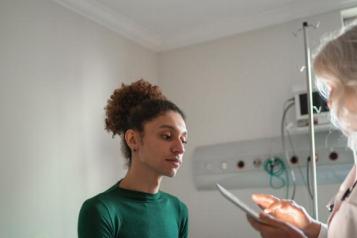Trans and non-binary people face hurdles at every stage of primary care

Key trends in our survey
The survey highlighted a range of administrative hurdles or poor staff attitudes that trans and non-binary people faced when they wanted to formally change their gender on their GP record or have their gender identity recognised in everyday interactions.
Of the 1393 respondents, 40% (565) said they had formally changed their gender marker on their GP record:
- 28% said they had lost access to a previous NHS record;
- 18% said they were misgendered in NHS written communications;
- 16% had experienced disrupted prescriptions;
- 13% had disruption to ongoing care.
In a separate question, over one in five (21%) of those who changed gender on their GP record said the NHS stopped offering them sex-based care, such as cervical screening, which is a critical check provided to people with a cervix to see if they are at risk of developing cervical cancer."
Overall, people had a mixed experience of GP care, with only 53% rating their GP practice as good for general care, 21% neutral and 22% poor. This figure is lower than for the general public in the annual GP Patient Survey, where 74% of people rated their GP practice as 'good'.
Gender-affirming care
As for access to gender-affirming care, such as referrals for hormone replacement therapy (HRT), over a third, 32%, rated their GP services as good; however, 39% rated it as poor, and 12 % neutral.
Of 1,179 respondents who tried to access hormone replacement therapy (HRT) via their GP, only 30% experienced no disruptions to their prescription at any point.
Responses suggest that inconsistent access to HRT can have an impact on trans and non-binary people’s physical health. Stopping or gaps in HRT medication can result in trans women experiencing menopause symptoms and trans men experiencing menstruation restarting.
Inconsistent access or lack of access to gender-affirming treatment can also have a detrimental impact on people’s mental health.
Our report highlights that some GPs are unwilling to refer people to Gender Dysphoria Clinics (GDCs) or issue bridging prescriptions during the long wait for gender-affirming care. Some also don’t accept shared care agreements with GDCs; and/or stop continuing gender-affirming care.
We call for a new LGBT+ healthcare strategy
The report comes almost seven years after the launch of the 2018 LGBT Action Plan, a cross-government initiative which pledged to tackle health inequalities.
We have called for the government and NHS England to develop a new comprehensive LGBT+ healthcare strategy to ensure that trans and non-binary people get clarity on entitlements to gender-affirming referrals, medication and specialist care and are protected from loss of sex-specific healthcare if they change their gender.
Louise Ansari, our Chief Executive, said:
"In 2018, the government's LGBT action plan said that they wanted "LGBT people to easily access healthcare when they need it most". Seven years on, our findings indicate that many trans and non-binary people feel they face unnecessary hurdles at every stage of care, often in addition to the everyday difficulties the general population faces, such as trying to reach a GP practice by phone.
"From administrative hurdles when changing gender marker to losing access to medical records or having care stopped, the issues have a profound impact on people.
"Deteriorating mental and physical health and being pushed into paying for gender-affirming care are just some of the examples of impacts and health inequalities trans and non-binary people face in the NHS.
“It's now time for the government to develop a holistic and national LGBT+ healthcare strategy that clarifies the extent to which primary care should deliver gender-affirming medical care, especially during long waits for people to see specialists. The strategy should also confirm the future role of adult gender dysphoria clinics, which have been subjected to a national review that has yet to report.”
Nick’s story
Nick, 31, from Coventry, says the wrong gender marker on his NHS records makes it hard to get the right care when he needs it.
After changing his name and gender marker in 2023, Nick ended up with two different NHS numbers: the correct, more recent number is on file at his GP surgery, and his old NHS number, which is still accessible to other services, which now has incorrect information.
"It's fine for routine care like GP appointments," Nick explains. "But if I use other services like A&E or NHS111, my old records appear. They still list things like old medications that I'm not taking anymore, so doctors, nurses and ambulance staff are looking at the wrong information."
Nick, who has changed his gender-marker to male, hasn’t been invited to his last cervical screening test - despite a family history of womb cancer. He believes it’s a result of a changing the marker.
It's not just NHS numbers that are having an impact on Nick's life. Long waits for hormone treatment mean that Nick faces barriers at many points in his life.
"Because I can't get a hormone prescription, as soon as people hear my voice, they assume I'm a woman. I get misgendered. On one occasion, I called the bank and they asked all of the screening questions, but still didn't think they were talking to me because I don't have a male voice."

